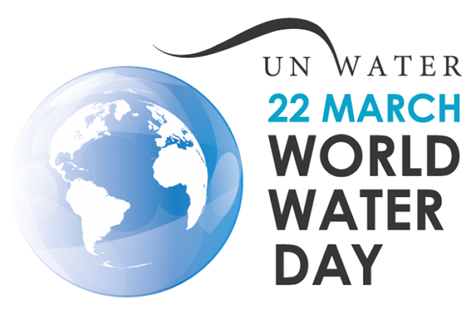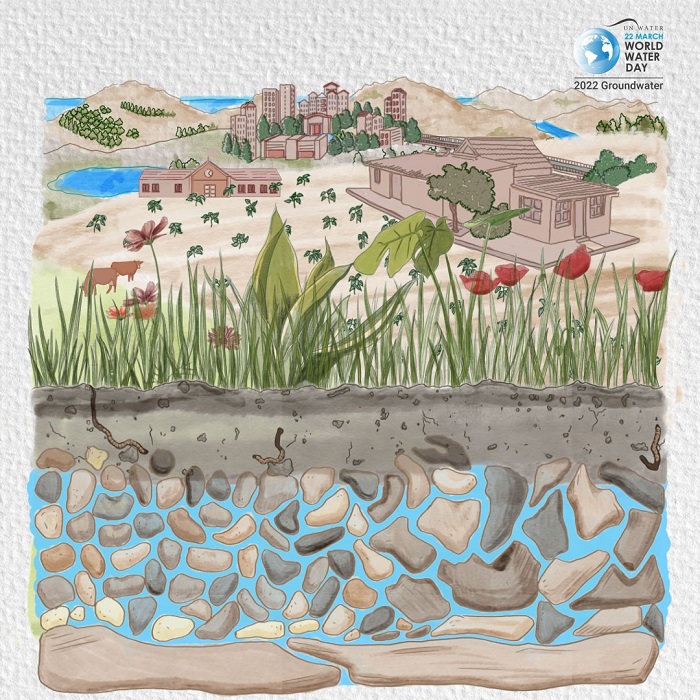Waterwise message in the spotlight for World Water Day 2022

- Survey shows only 38 per cent of people understand rainfall is not Perth's main water source
- Perth's two seawater desalination plants account for 45 per cent of drinking water
- McGowan Government has allocated $1.4 billion for a third desalination plant
- Action needed to rebalance Perth and Mandurah's precious groundwater resources
The impact of climate change on Perth's water sources is in the spotlight as part of World Water Day 2022, with a recent survey showing many people still believe rainfall is Perth's primary drinking water source.
Following Perth's hottest summer on record, Water Minister Dave Kelly today revealed Water Corporation data indicating just 38 per cent of people in Perth knew rainfall was not the city's main drinking water source.
Since the 1970s, average annual rainfall across southern WA has fallen by 20 per cent. Combined with longer, hotter summers and drier winters, this has seen an 80 per cent reduction in streamflow to metropolitan dams.
Where Perth once averaged 420 billion litres of streamflow annually - enough to supply today's population with drinking water for a year - this figure is now around 70 billion litres. Today, rainfall in the form of streamflow accounts for around 15 per cent of scheme water supplied to Perth and some regional areas.
Over the past two decades the State Government has responded to the impacts of climate change on Perth's water resources by investing in rainfall-independent water sources. Today nearly half the drinking water supplied through the Integrated Water Supply Scheme comes from desalinated seawater and groundwater replenishment.
The McGowan Government has also allocated an additional $1.4 billion in the 2021-22 budget towards a new seawater desalination plant to further secure Perth's long-term drinking water supply.
Beginning in 1993, World Water Day is an annual United Nations observance day promoting the importance of fresh water and the sustainable management of water resources. This year's theme is Groundwater - making the invisible, visible.
Since 1980, the impacts of climate change and increased use have seen water tables across the Gnangara Mound - the groundwater system that supplies 70 per cent of all water used across Perth and Mandurah - fall by up to 10 metres. That is equivalent to a 1,000 billion-litre loss of aquifer storage or 1,000 Optus Stadiums full of water.
In addition to supplying up to 40 per cent of the city's scheme water, the Gnangara Mound also provides water for industry and horticulture, garden bores, parks and other green spaces north of the Swan River, and supports the preservation of healthy wetlands, caves and bushland.
That is why the McGowan Government, through the Department of Water and Environmental Regulation, has released draft plans to rebalance Perth and Mandurah's precious groundwater resources. This includes the draft Gnangara Groundwater Allocation Plan and a proposal to align garden bore sprinkler rosters with the scheme sprinkler roster, which combined will help save 70 billion litres of water per year.
For more information on the plan, visit: http://www.wa.gov.au/rebalancingourgroundwater
Comments attributed to Water Minister Dave Kelly:
"World Water Day is an opportunity to reflect on where our water comes from and to consider how we can all help ensure a sustainable future for WA's most precious resource.
"Perth was the first city in Australia to desalinate seawater as a drinking water source and one of the first cities in the world to pursue groundwater replenishment. Today, we're the only Australian city with two desalination plants, and soon a third will be needed.
"Because of the impacts of climate change, Perth and Mandurah's precious groundwater supply is literally disappearing beneath our feet.
"We need to act now to protect our precious groundwater resources because sustainable groundwater use is critical to protecting our wetlands, lakes and bushland from the impacts of climate change.
"Water supply planning is driven by many factors, but one way we can all help is by staying as waterwise as possible. Since 2008, average household water use has fallen by 50,000 litres, which is a significant achievement in the face of hotter average temperatures."
Minister's office - 6552 6100
